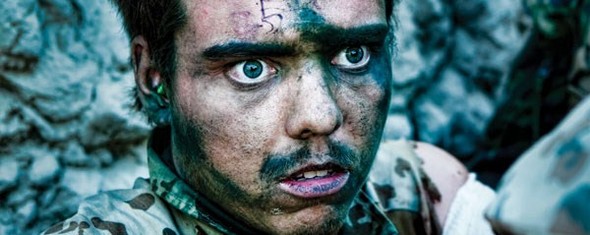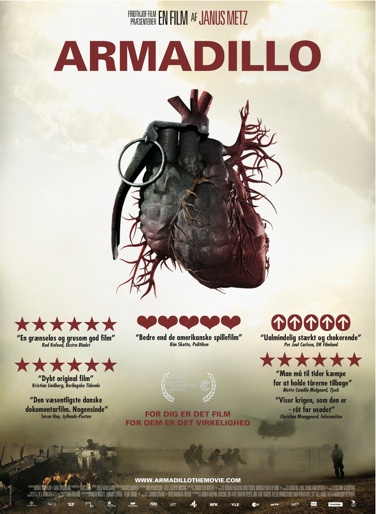On the ninth anniversary of the September 11 terrorist attacks on America, I watched Armadillo, a Danish documentary about the war in Afghanistan, at the Toronto International Film Festival in Canada. I saw it because it seemed relevant and I had a few hours between films that I was actually excited for. I went in without any expectations, totally unaware that it would be the most thought-provoking film I would see that weekend.
Armadillo explores the War on Terror on a personal level through the eyes of a small group of soldiers who are deployed for the first time to Forward Operating Base Armadillo on the edge of the Helmand frontline in Afghanistan. Taliban territory lies 800 meters beyond the camp’s walls. As operations get intense and the war becomes a reality, their boredom turns to cynicism and anger. Getting shot at and watching friends fall, the soldiers, who were originally sent to help the locals, become mistrustful disillusioned.
Director Janus Metz and his cameraman, Lars Skree, put themselves in very real danger for this film, and it shows. They went out on military patrols with the soldiers and were directly engaged in multiple gunfights with the Taliban. With only their cameras and no way to defend themselves, they risked their lives for the footage on screen.
Metz and editor Per K. Kirkegaard wisely chose to edit Armadillo as a cinema verite-style narrative rather than conventional documentary. There is no voice over. There are no interviews. The camera tells the soldiers’ story for them. We follow them before, during, and after their deployment. Their personalities emerge through the conversations they have with one another with a candidness that on-camera interviews could never have achieved.
Metz’s objective camera lets you see the action through your own eyes instead of through the usual lens of a documentary filmmaker with an agenda. This is crucial in battle scenes where people are injured and killed. The film’s tensest moment sparked an enormous uproar in its native Denmark over the possibility that soldiers violated the rules of engagement when they (as one soldier puts the allegation) “liquidated wounded people and piled up the dead to take pictures of ourselves as heroes.”
That Armadillo offers no conclusive proof whether this actually happened is a mark of its objectivity. You’ll see in the scenes in question that Metz could easily have spun the footage in favor of either side of the argument. He doesn’t though, and the result is a gripping and informative film that gives viewers a real-life image of the human consequences of the War on Terror. Its greatest asset is that it lets the audience figure those consequences out for itself.
10 out of 10
Check out the trailer and poster for Armadillo below:


